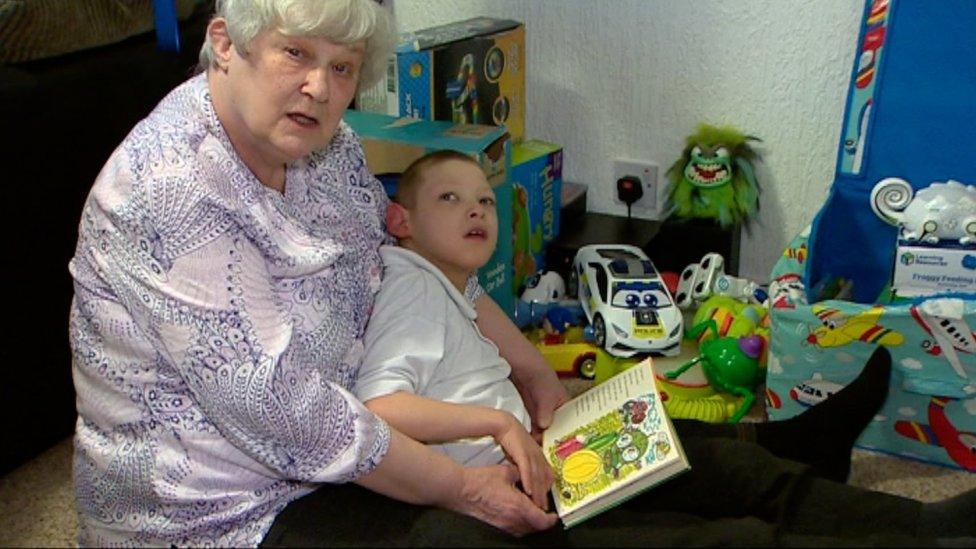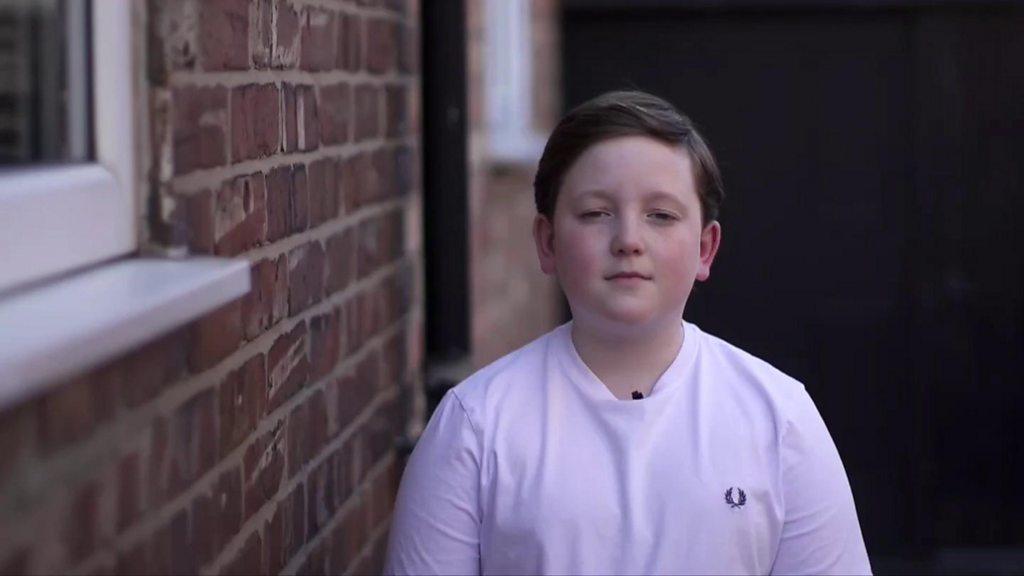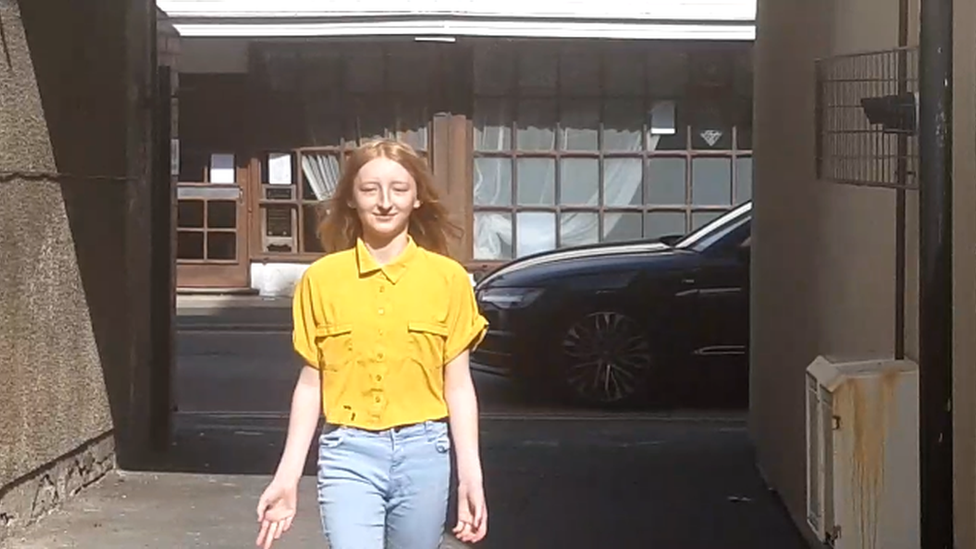Unpaid carers 'invisible' during pandemic
- Published
'I had a bad day yesterday, I hope tomorrow's better'
"We are the plaster in the walls - you don't see us, we just hold everything together."
Carer Amy Jonson, 40, looks after her son Jayden, eight, who has spastic quadriplegia cerebral palsy and complex care needs, and her mother Rita, 71.
Rita moved into her daughter's flat in Cardiff to shield as she has chronic obstructive pulmonary disease (COPD).
Carers Wales says since the pandemic the number of unpaid carers has risen, external by almost 200,000 to about 683,000.
"I think carers, in particular unpaid parent carers like me, are, I would say, completely invisible outside our own community," says Amy.
"Even if I was to say I really need help, there's no help out there, so what choice is there? I just have to get on with it."
Cardiff Council says, while it does not comment on the specifics of individual cases, social care, housing and education departments are "highly committed to working closely together, and with individual families to provide high-quality support and services to children with disabilities and their families".
Amy has been told Jayden could spend two days a fortnight in a hub, but she says she wants to keep him and her mother away from other people in order to shield them from Covid-19.

Rita has COPD and moved in with her daughter and grandson to shield during the lockdown
She admits she was struggling to meet all of Jayden's needs before lockdown.
She has a back injury and finds it hard to lift her son and she says her flat is too small to contain all the equipment needed.
In February, she considered investigating putting Jayden into the care system.
"I'm having to think about it which is terrible," she says.
"He's getting bigger and I'm getting weaker. It is a hard thing to say but, at the end of the day, I've got to make sure his needs are met."
Amy says she's been taking things one week at a time since lockdown.
"I haven't been thinking ahead much at all and that's how I've coped."

THE R NUMBER: What it means and why it matters
LOOK-UP TOOL: How many cases in your area?
EXERCISE: What are the guidelines on getting out?
RECOVERY: How long does it take to get better?
SCHOOLS: When will children be returning?

Like many parents, she has been trying to home school Jayden, but has found it tough and worries that he may not hit his educational targets.
Special equipment such as a standing frame has been brought from Jayden's school but Amy says she finds it hard to help him use it as it usually takes two people to help him into position.
She also uses a sling to help support Jayden but she says the additional lifting she has done herself in the last three months has made her own physical condition worse.
"I'm the thin red line - if anything happened to me, Jayden would have to go into care so that has been pretty difficult trying to take care of myself," she says.
"It has been very, very difficult but I try not to dwell on it.
"I say 'I had a bad day yesterday, I hope tomorrow's better' and that's how I've coped."
Claire Morgan, director of Carers Wales, said: "Recognising the contribution of unpaid carers to our society and properly supporting them has never been more important than during this pandemic."
- Published8 June 2020

- Published20 May 2020

- Published23 May 2020